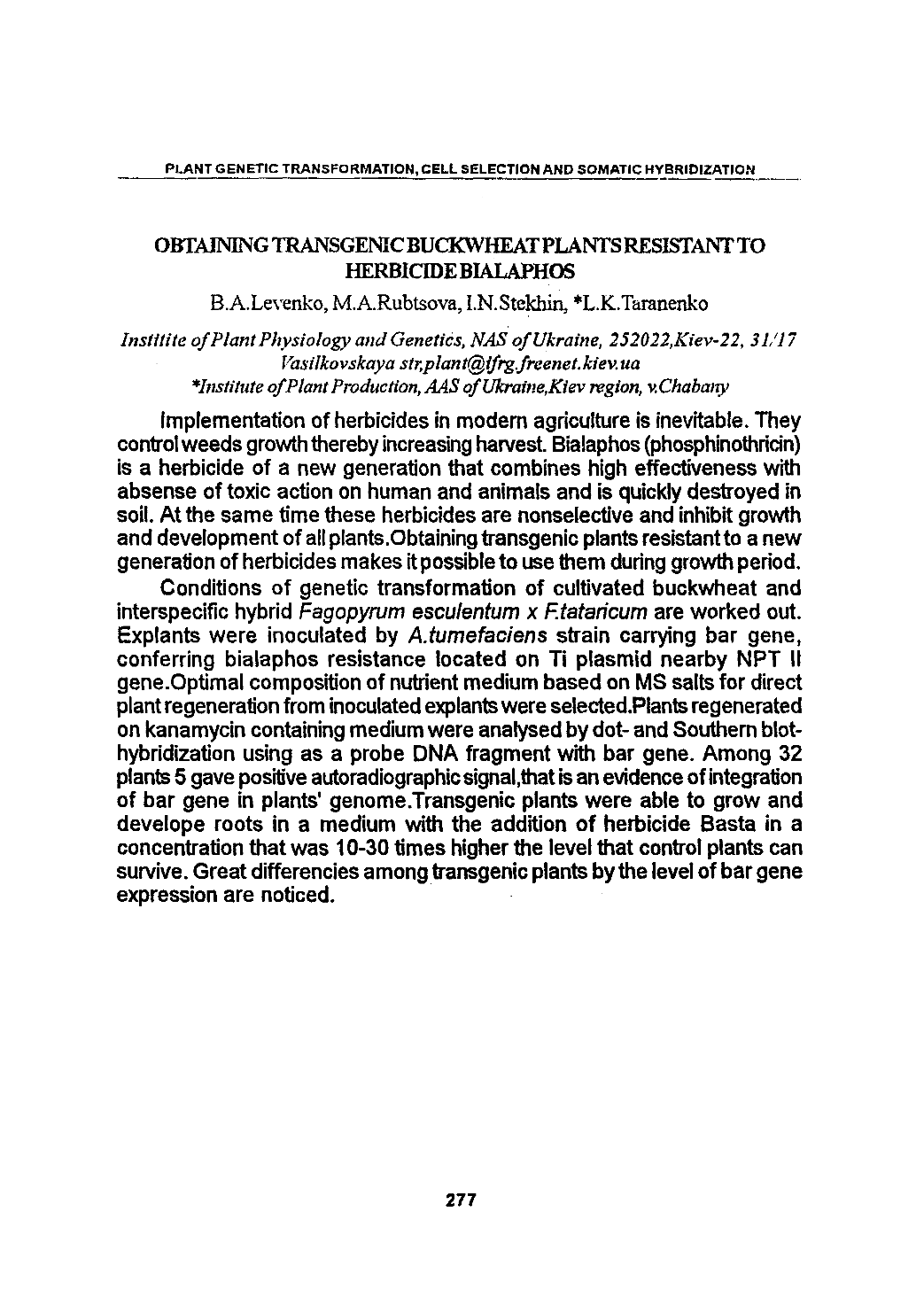

PLANT GENETIC TRANSFORMATION, CELL SELECTION AND SOMATIC HYBRIDIZATION
OBTAININGTRANSGENICBUCKWHEATPLANTSRESISTANTTO
HERBICIDEBIALAPHOS
B.A.Levenko, M.A.Rubtsova, I.N.Stekhin *L.K.Taranenko
Institute ofPlant Physiology and Genetics, NAS of Ukraine, 252022,Kiev-22, 31/17
Vasilkovskaya sir
,plant@ifrg.freenet.kiev.ua*Institute ofPlantProduction, AAS ofUkraine,Kiev region, v.Chabany
Implementation of herbicides in modem agriculture is inevitable. They
control weeds growth thereby increasing harvest. Bialaphos (phosphinothricin)
is a herbicide of a new generation that combines high effectiveness with
absense of toxic action on human and animals and is quickly destroyed in
soil. At the same time these herbicides are nonselective and inhibit growth
and development of all plants.Obtaining transgenic plants resistant to a new
generation of herbicides makes it possible to use them during growth period.
Conditions of genetic transformation of cultivated buckwheat and
interspecific hybrid
Fagopyrum esculentum x F.tataricum
are worked out.
Explants were inoculated by
A.tumefaciens
strain carrying bar gene,
conferring bialaphos resistance located on Ti plasmid nearby NPT II
gene.Optimal composition of nutrient medium based on MS salts for direct
plant regeneration from inoculated explantswere selected.Plants regenerated
on kanamycin containing medium were analysed by dot- and Southern blot-
hybridization using as a probe DNA fragment with bar gene. Among 32
plants 5 gave positive autoradiographic signal,that is an evidence of integration
of bar gene in plants' genome.Transgenic plants were able to grow and
develope roots in a medium with the addition o f herbicide Basta in a
concentration that was 10-30 times higher the level that control plants can
survive. Great differencies among transgenic plants by the level of bar gene
expression are noticed.
277
Научная электронная библиотека ЦНСХБ









